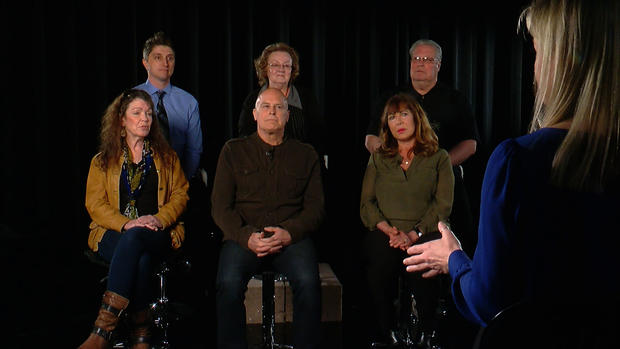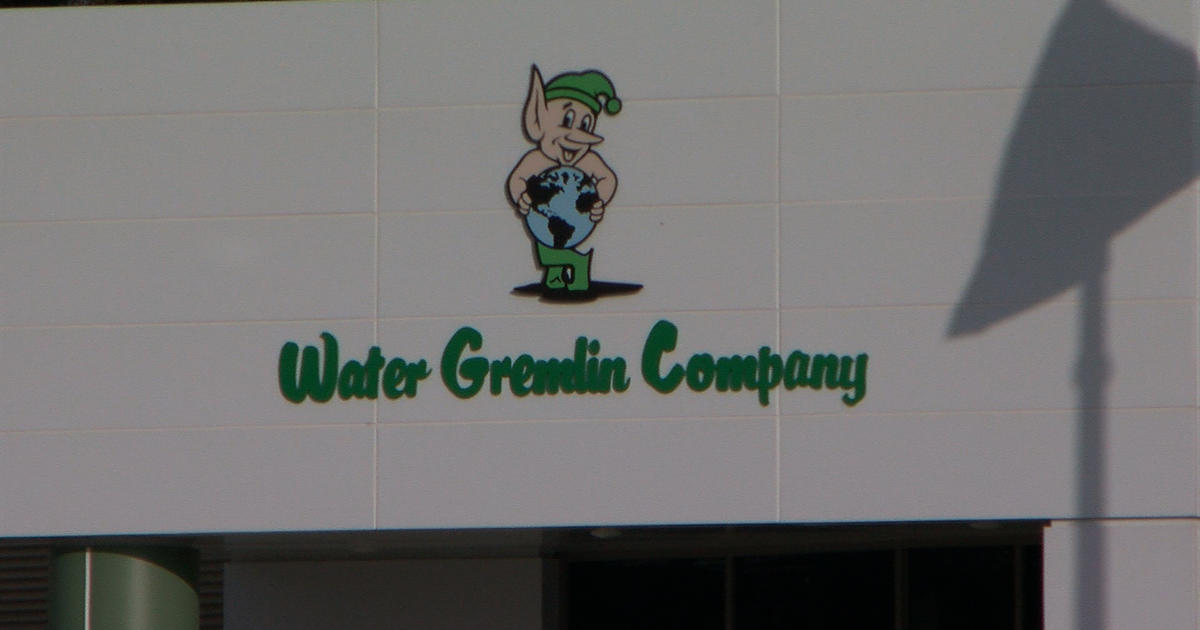A Community Shares Concerns Over Cancer Cases
MINNEAPOLIS (WCCO) -- A Twin Cities manufacturer shocked its neighbors when it made an alarming admission: A cancer-causing chemical had been leaking for years.
Leaders asked, "How did this happen?" And we asked, "How are the people?" Our answers have a troubling theme.
WCCO-TV's Jennifer Mayerle had a candid conversation with neighbors for this special report.
"My aggressive form of melanoma was diagnosed in November of 2011," Kerri Luecke said.
"Multiple myeloma," Steve Laliberte said.
"Endometrial cancer," his wife Jodi Laliberte said.
"I was officially diagnosed in 2006 with leukemia, Non-Hodgkin lymphoma," Page Stevens said.
More recently, Page found out a more aggressive lymphoma has taken over her body.
"So the PET scan lit up like a Christmas tree," Page Stevens said.
Denny is Page's husband and caregiver.
"I walk the road with her, it's just hard," Denny Stevens said.
Dave Strong's wife Louise died from an aggressive form of cancer within months of diagnosis in 2016.
"It changes everything. I've been through therapy, grief counseling, almost killed me to be honest," Strong said.
A radical hysterectomy, bone marrow transplant, chemo -- just some of what has forced this group to think about their own mortality.
"The thoughts really move to the future, what life will be like for those left behind," Jodi Laliberte said.
The common denominator for Kerri, Jodi and Steve, Page and Denny, and Dave: They all live or lived near Water Gremlin in White Bear Township.
The company that makes fishing sinkers and battery terminal posts emitted significantly more of a cancer-causing chemical TCE than allowed by its permit. Water Gremlin will pay $7 million in fines and corrective action as part of a settlement with the state.
"I was disappointed and I was angry," Luecke said.
"I was relieved actually. We can put a reason behind it, because I believe most cancer patients ask that question, not, 'Why me?' but, 'Where did this come from?'" Jodi Laliberte said.
The company was expected to self-report the levels of TCE being emitted to the state. Instead, they underreported and admitted to exposing the community to levels above health benchmarks for more than 15 years. A Minnesota Pollution Control Agency map shows their specific area of concern. The agency reports, at times the levels were seven times what was allowed.
"It's puts a whole different nagging twist to why I'm sick," Page Stevens said.
"You spend a long time convincing yourself that that's just the way the world is, and it was fate, and it was chance, and it was bad luck, and then to find out that someone's actions might have caused that," Strong said.
The Minnesota Department of Health gave this statement to WCCO-TV:
We realize how difficult it can be for people who have been diagnosed with cancer to understand what caused their cancer, especially when they may not have any of the known risk factors for cancer, such as advanced age, family history of cancer, or lifestyle factors such as smoking, what you eat or don't eat, amount of exercise, getting too much sun, etc. With the exception of perhaps mesothelioma and asbestos exposure, it is extremely difficult to demonstrate that any one person's cancer was caused by a particular environmental exposure.
So, can we say that John Smith's cancer was caused by Water Gremlin emissions? No. But we can't say it wasn't either. However, what we can say, based on our review of the available data over the last 10 years, is that we do not see an elevated rate of cancers, even in those types of cancer suspected of being linked to TCE, in the area surrounding Water Gremlin. That is good but does not necessarily provide a "clean bill of health" regarding environmental exposures, because a few excess cancers in 100,000 lifetimes of exposure cannot be identified with our current tools.
Regardless of whether or not cancer rates are elevated, people deserve to live in a clean environment. This is why we take action to reduce community exposures to known carcinogens, with the goal of reducing the risk to such a low level that it cannot be measured.
MDH looked at cancer occurrence over a 10-year period in the areas surrounding Water Gremlin. The study found the area is "virtually identical to cancer rates in the Twin Cities Metro area." But the admission of elevated levels of TCE being released for more than a decade, and the cancer risk associated with it, raises new health concerns for this group.
"Well, am I going to get it? My son lives with us, is he going to get it?" Denny Stevens said.
"And we don't know the long-term effect right now that this could possibly have on any of us," Luecke said.
We asked the six neighbors what they have heard from Water Gremlin, and they all had the same answer: Nothing.
Carl Dubois, vice president of international manufacturing at Water Gremlin Water, responded to WCCO-TV about the community concerns:
We are sorry that we have created health concerns in the community. We hope that the Minnesota Department of Health's recent findings, which indicate that there has been no increase in cancer or birth defect rates in our area, brings some peace of mind to our neighbors and fellow White Bear area residents. While encouraged by these findings, we urge any neighbors with health concerns to contact the Minnesota Department of Health.
The community demands more.
"I want to know how bad the problem really was, and I don't think we're getting that answer," Strong said.
"I feel it's the tip of the iceberg right now. There is so much under there that we don't know about," Luecke said.
"I don't know the answer, but my God, take some responsibility," Denny Stevens said.
Water Gremlin can no longer use TCE. Some state lawmakers want to ban it altogether. Since this interview, Water Gremlin told WCCO-TV it planned to mail the community postcards about a new website. The company says it's designed to keep the public informed.
An attorney has now set up an office in town. Dean Salita represents the neighbors we spoke with and dozens more. He will talk with WCCO-TV about why he thinks Water Gremlin's response hasn't gone far enough, and what he plans to do about it, in a story we will air this Wednesday at 5 p.m.
Here is more information on the Water Gremlin case on the Minnesota Department of Health's website.








